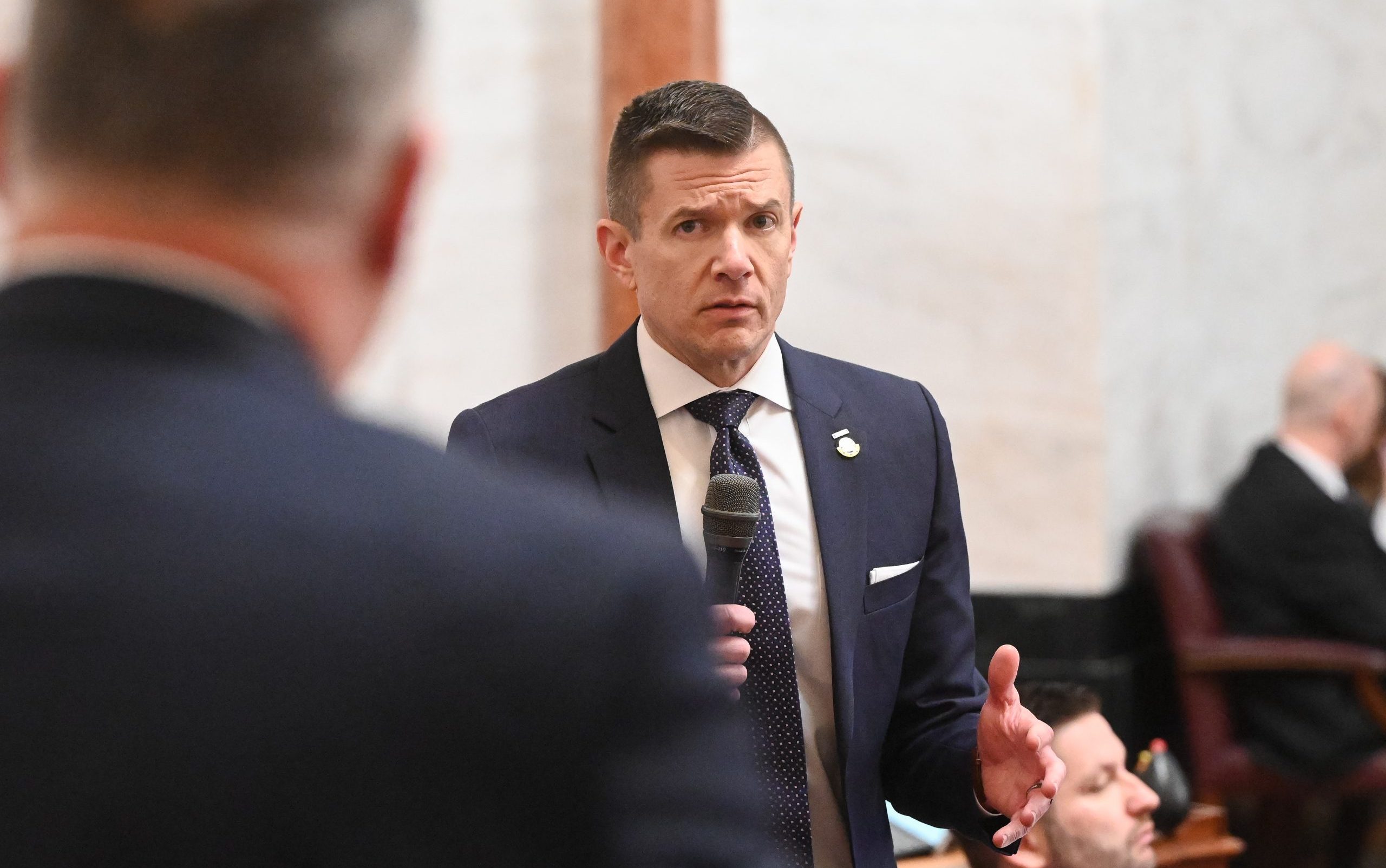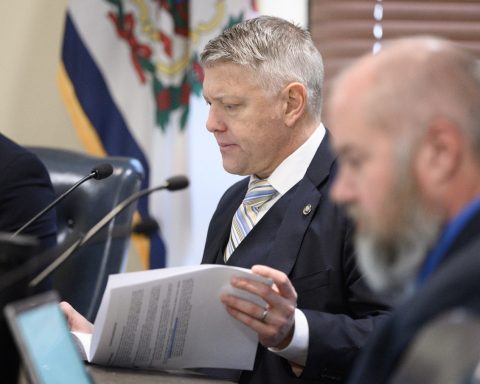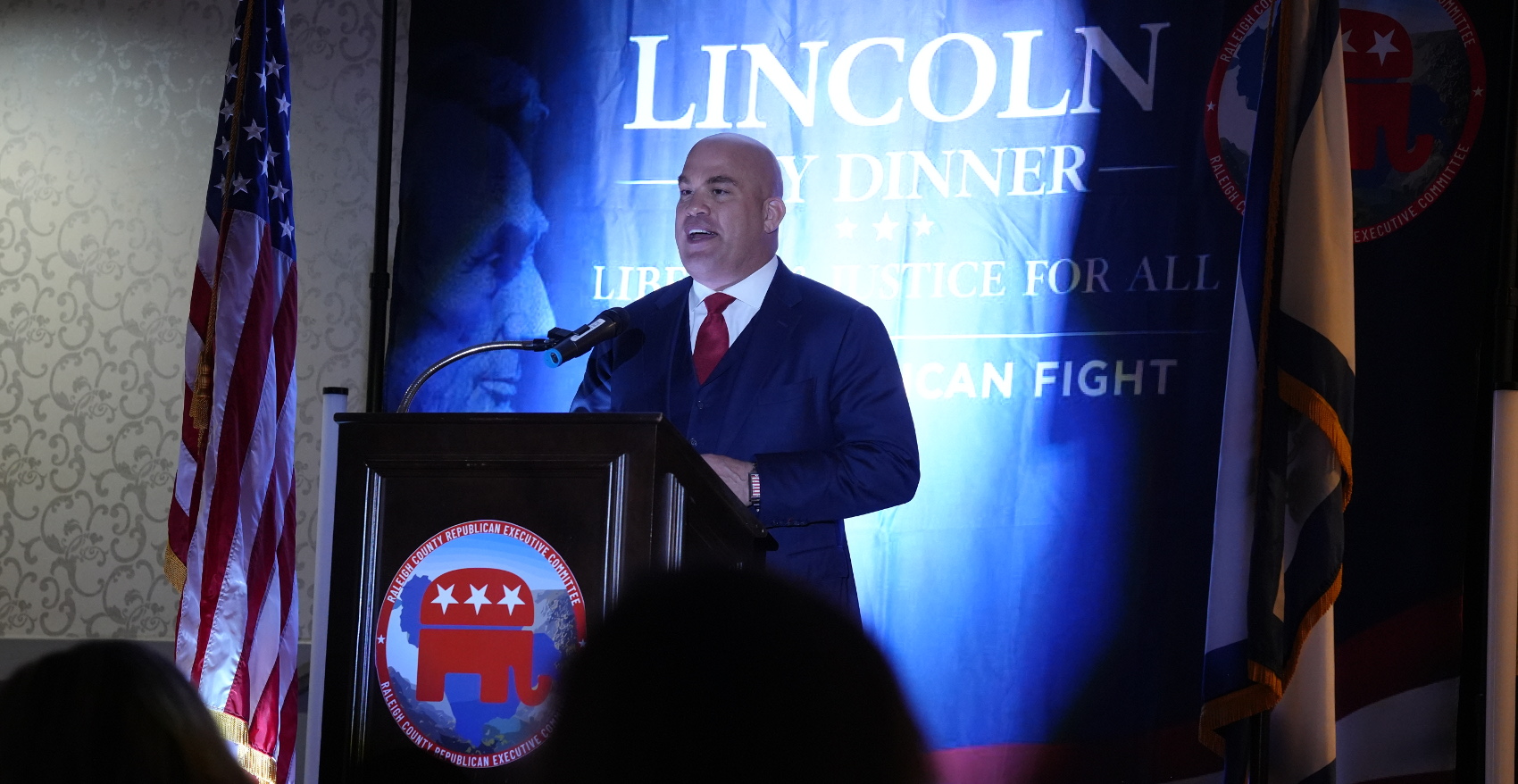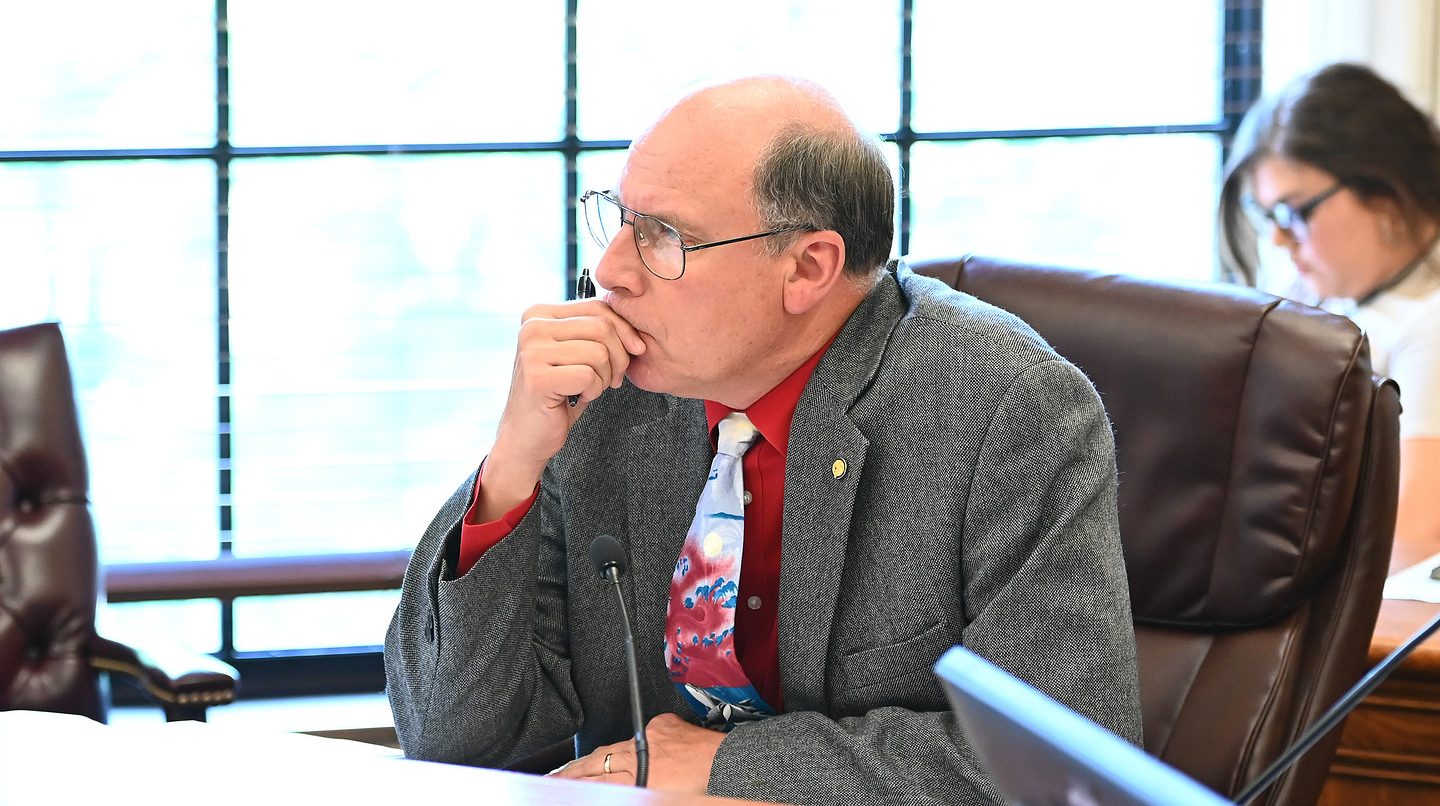CHARLESTON — In a passionate floor speech on Monday, Sen. Ryan Weld (R-Brooke) expressed his opposition to Senate Bill 579, which seeks to prohibit local municipalities in West Virginia from passing ordinances that create special protected classes beyond those already outlined in state law. The bill primarily targets ordinances passed in approximately 20 cities and towns across West Virginia that extend protections based on sexual orientation and gender identity.
These local ordinances, which date back to 2007, mandate that public accommodations, including restrooms and shower facilities, be open to individuals based on their gender identity, rather than their biological sex.
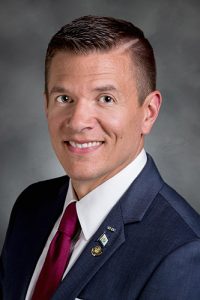
Sen. Weld, who represents district 1, did not mince words in his critique.
“This is dumb,” he said emphatically during the floor speech. “It is.”
He continued to question the necessity of the bill, arguing that there has been no evident problem caused by these local ordinances.
“Where is it a problem? Where is this creating a problem? I haven’t heard of any,” Weld said, ignoring concerns and citing municipalities such as Wheeling and Bethany that have adopted such ordinances.
While Senator Weld ignored concerns about local ordinances allowing biological males to use female restroom facilities, a disturbing case in neighboring Loudoun County, VA, raises significant questions about the potential dangers of such policies.
In 2021, a biological male student, who identified as a trans-female, sexually assaulted a female student inside a female restroom at Stone Bridge High School in Ashburn, VA. In an effort to cover up the incident, the Loudoun County Board of Education failed to report the assault to law enforcement and instead transferred the perpetrator to Broad Run High School. At Broad Run, the same student sexually assaulted another female student in a female restroom.
It wasn’t until the father of the victim caused an incident at the front office that the police were finally called. During this time, Loudoun County Superintendent Scott Ziegler denied that “a sexual assault had ever taken place in a bathroom in any of their schools” at a June 22, 2021 board meeting. He made that statement after informing members of the Loudoun County School Board about the attack in an email on May 28, while the Sheriff’s Office was already investigating the assault. It was an evident incident of a cover-up that was directly correlated to the Superintendent attempting to accommodate the trans student, even after the first initial sexual assault.
After investigators discovered the factual basis of the incidents, Superintendent Ziegler was arrested and indicted on three misdemeanor charges for misconduct. During a closed session, the Loudoun County School Board later voted unanimously to fire Ziegler. Ziegler was found guilty.
This situation highlights the real concerns surrounding policies that allow biological males into female restroom facilities. Loudin County, VA, where the incidents took place, is a neighboring county to Jefferson County, WV.
The bill would nullify the ordinances that have been passed by these cities and towns, effectively reversing enabling provisions that are currently in place regarding housing, employment, and public accommodations.
Sen. Weld also disputed claims made by some of the bill’s proponents, including the idea that the term “public accommodations” does not cover restrooms or locker rooms.
Weld argued, “Public accommodations does not include bathrooms or locker rooms, Mr. President,” a statement which drew scrutiny from legal experts.
The case Doe v. Regional School Unit 26 (2014), for example, defines public accommodations as encompassing facilities such as restrooms, making Weld’s claim factually incorrect.
Sen. Weld further questioned the motivations behind the bill, asking whether there had been any significant push from local businesses or residents calling for the repeal of such ordinances. “Is anyone asking for that uniformity?” he asked, referring to the idea that all municipalities in the state should follow a single, uniform standard when it comes to discrimination laws. “I haven’t heard anybody asking for that kind of uniformity,” he asserted.
Sen. Weld also took aim at the messaging surrounding the bill, referencing the slogan “All kinds are welcome here,” used by the advocacy group Fairness West Virginia to promote inclusivity and support for gender identity policies. “In West Virginia, we like to say, all are welcome,” Weld said. “I’m not really sure this helps with that message.”
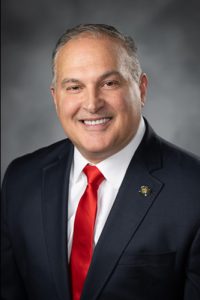
Sen. Weld’s comments were met with a sharp rebuttal from Sen. Brian Helton (R-Fayette).
“I’m sorry you think it’s a dumb bill and I’m sorry you think that the people who support it are dumb,” Sen. Helton told Sen. Weld. “I believe West Virginians overwhelmingly support consistency in our government.”
He emphasized the bill’s focus on providing “common sense” policies that align with the majority of West Virginians’ values, particularly regarding parental rights and the protection of private spaces for women and girls.
Sen. Helton went on to argue that the bill was necessary to ensure that local ordinances do not infringe on the rights of the majority.
“We can’t allow in this body for women and girls, their private spaces, to be invaded,” Sen. Helton added, further criticizing what he referred to as “Fairness laws,” which he contended are “unfair laws to the majority of West Virginians.”
The debate over Senate Bill 579 is expected to continue as lawmakers weigh the implications of the bill in the House.
Weld, a 2015 graduate of Duquesne University School of Law, has long been a supporter of the LGBTQ+ community in West Virginia. His comments on SB 579 continue to stir controversy as the state debates child welfare objectives.

